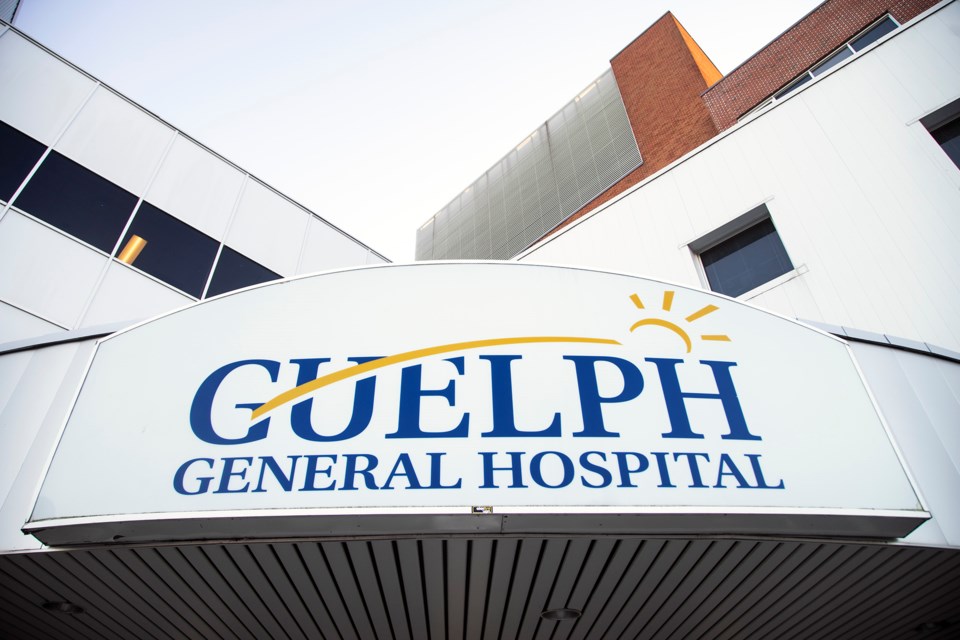In the aftermath of the pandemic, with a rapidly aging and growing population, the strain on Guelph General Hospital has been worse than anyone could have imagined, says a top hospital executive.
While future hospital plans have not been solidified, vice-president of patient services and chief nursing executive Melissa Skinner said a new hospital in Guelph to meet the city's current and future needs would cost around $1 billion.
"We're looking at a $1 billion build," Skinner said on Thursday morning’s Breezy Breakfast podcast, a weekly online community event that brings in guest speakers each week.
"How does one fund a hospital? So 90 per cent of it is from the ministry (for) bricks and mortar. The additional 10 per cent, plus all the equipment, is something called a local share. So that means the hospital, municipal support and our fundraising has to come up with the last 10 per cent," Skinner said.
Close to 30 participants asked questions about the future of healthcare, namely, a new hospital and capacity concerns.
Provincial planning for a new hospital in Guelph began just under a year ago. While the details are nowhere close to being solidified, she said to meet capacity needs and have space to grow into, any new space would need to be about three times the size of the current hospital.
The emergency department was initially built for around 42,000 to 43,000 patients, but Skinner said they see close to 60,000 patients per year.
Along with more space, she said any new rooms would be primarily single occupancy for infection control purposes. They would also have larger, more accessible bathrooms.
She said they are considering the pros and cons of building on their existing site or building on a new site altogether. Another option is to split the hospital in two, offering some services, like minor surgeries, on-site at their current location, and moving the majority of acute services to the new location.
Their main focus, though, is on building a hospital that they can grow into, rather than having outgrown it by the time they can move in.
“We're working really closely with our architects and our planners to make sure we have flexible space that can flex up to accommodate more beds or flex down depending on what we need over time,” she said.
In terms of a potential location, she said their current site is about three acres, so they need at least eight or nine.
However, she said they haven’t started looking for a lot, because they haven’t yet reached an agreement with the province as to which method of expansion they’re going to take.
The build is expected to cost around $1 billion: 90 per cent of the funding comes from the province, while the other 10 per cent comes from municipal support and fundraising.
In the meantime, they’ve taken a number of measures to contend with capacity issues, including installing three portables on the property “just to survive.”
“It has been worse than we ever imagined,” Skinner said of the pandemic aftermath.
She said on Thursday morning there were 18 people waiting in the emergency department for a bed in the inpatient unit.
“Let me put that into perspective. We only have 24 stretchers in the emergency department, so 18 doesn’t give us a lot of space to see those patients who are coming in,” she said.
“So that is where we sometimes see that backlog of patients waiting in the waiting room, because we just can’t get them in as fast as we want to.”
She said patients are waiting in the ER because they have only 162 beds in the medical surgery areas, not including pediatrics or ICU.
“And we have 164 patients. That means, unfortunately we have some patients who are in hallway spaces, which is not great. It breaks our hearts to do that.
“We are too small,” Skinner said of GGH. “Our community is growing so fast, the third fastest growing community in the country. And we just don’t have enough space. If you have been around our hospital, you will agree.”
About a year ago, she said they didn’t think they were going to have enough nurses to continue operating the way they always had. Along with nursing agencies, they started looking at alternative ways of providing care, like bringing in personal support workers and creating a new nursing assistant role to help ease some of the workload. Hopefully, she said, these roles will also reduce their reliance on nursing agencies overtime.
On top of an over-strained hospital system due to the pandemic, an aging and rapidly growing population, she said there are also a large number of nurses headed into retirement because of how stressful the last few years have been.
“They went from being seen in the public as heroes, and now they say they feel like zeros, because people are so angry,” she said. “They’re mad about the long stays in emerge, they’re mad about the long waits. And so our staff have been on the receiving end of some pretty terrible treatment.”
She said she’s worried about the stress levels and work-life balance of GGH staff, and they are hoping the additional help from PSW’s and nursing assistants can relieve some of the workload.
“But we’re in for a difficult time for the next few years. This isn’t something that’s going to go away quickly,” she said.
You can listen to the whole podcast when it's made available here.
